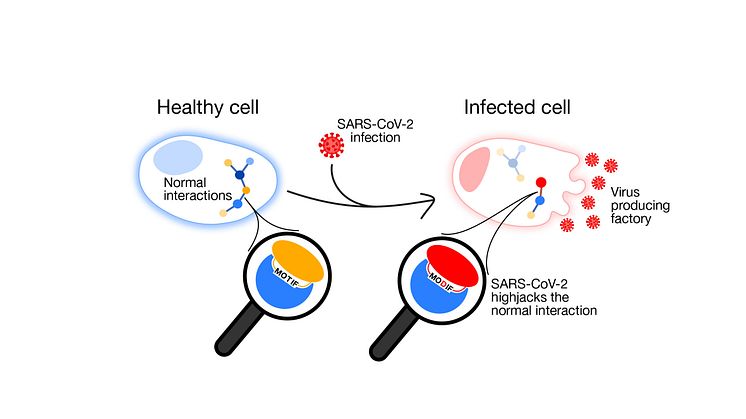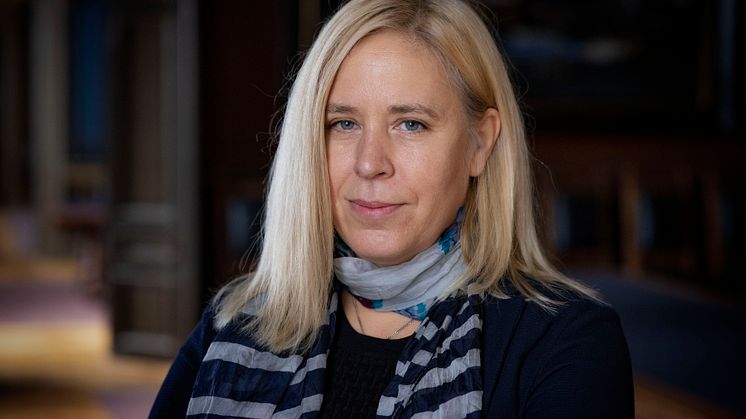
Press release -
Blocking inhibits SARS-CoV-2 infection of human cells
Viruses invade our cells and turn them into virus factories. Researchers at Uppsala University, together with a network of national and international collaborators, have identified the way SARS-CoV-2 takes control of our cells – and they have found a possible way to inhibit the ravages of the virus.
“This could lead to the further development of an inhibitor against COVID-19, although a lot of work remains to be done before we can say this with certainty,” says Ylva Ivarsson, a professor of biochemistry at Uppsala University, who has coordinated the study.
SARS-CoV-2, like all viruses, is an intracellular parasite. Like other viruses, SARS-CoV-2 needs to use the machinery of cells to enter them and cause them to produce more viruses. To produce more virus particles, the cell first needs to be induced to produce new genetic material, RNA, which is then wrapped in a protective coating and released from the cell to infect more cells. Though the virus cannot achieve this on its own, its proteins bind to human proteins and cause them to help produce viruses.
Hoping to find key interactions that can be inhibited with existing or completely new medications, researchers have worked hard since the start of the COVID-19 pandemic to determine which human proteins SARS-CoV-2 proteins bind to.
At Uppsala University they have developed and used a new method to map interactions on a large scale between human proteins and coronavirus proteins, which has provided valuable new information. Collaborating with a research team at Umeå University, they used this information to show that blocking one of these interactions inhibited infection of human cells by SARS-CoV-2. Working with researchers at the University of Copenhagen, they confirmed the interaction between the viral protein and the human protein in a more complex system. This has enhanced understanding of what happens in the cell when the virus takes over the interaction.
These findings could lead to the further development of an agent that inhibits COVID-19, although much work remains to be done before researchers can determine whether the inhibitor they have found can be developed to treat viral infection.
“We have worked intensively on the project during the ongoing pandemic. It has been amazing how quickly research can progress when researchers from different universities and countries join forces and work towards the same goal,” says Ivarsson.
In addition to interactions with SARS-CoV-2 that cause COVID-19, the researchers can demonstrate many interactions with other coronavirus proteins, such as SARS-CoV and MERS-CoV and more common coronaviruses. This provides broad insight into how various coronaviruses differ and could ultimately help us to better prepare to deal with new types of viruses.
Kruse, T., Benz, C., Garvanska, D.H. et al. Large scale discovery of coronavirus-host factor protein interaction motifs reveals SARS-CoV-2 specific mechanisms and vulnerabilities. Nature Communications 12, 6761 (2021). https://doi.org/10.1038/s41467...
Contact:
Ylva Ivarsson, Professor of Biochemistry at Department of Chemistry - BMC, Uppsala University
email: ylva.ivarsson@kemi.uu.se, phone: +46 (0)18 471 4038
Topics
Uppsala University
The first University in Sweden. Quality, knowledge, and creativity since 1477. Education and research of the highest quality and relevance to society, business, and culture. Uppsala University is ranked among the world’s top higher education institutions. www.uu.se


